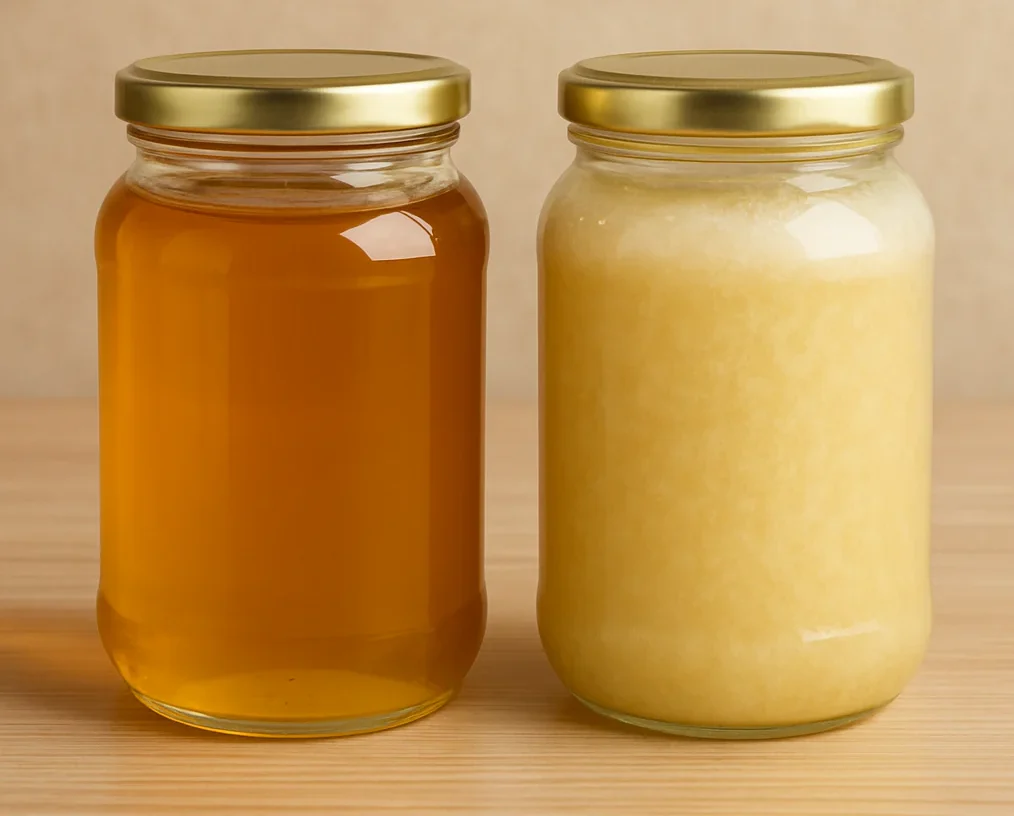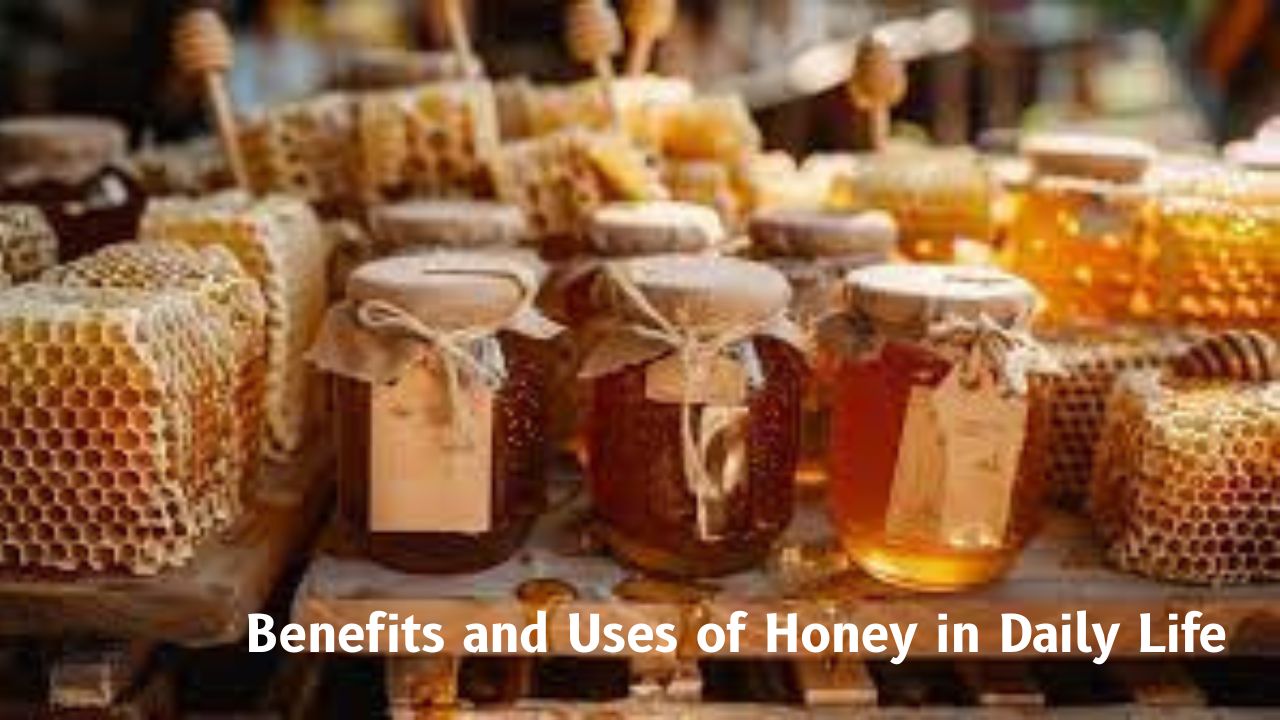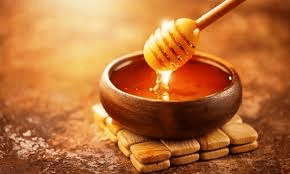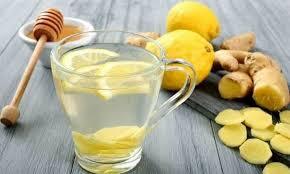Table of Contents
Does Honey Expire?
Honey is one of the most fascinating natural sweeteners known to mankind — not only for its delicious flavor and health benefits but also for its incredible longevity. It’s widely believed that honey never expires — and for the most part, that’s true. Archaeologists have discovered pots of honey in ancient Egyptian tombs, sealed for over 3,000 years and still perfectly edible. But how does honey manage to last so long? And under what conditions can it actually spoil?
Let’s uncover the truth behind why honey lasts forever, how to store it properly, what causes it to crystallize or go bad, and the myths and facts surrounding its preservation.
What Is Honey? The Nature of a Timeless Sweetener
Honey is a sweet, viscous substance produced by honeybees using the nectar of flowering plants. Bees collect nectar and process it using special enzymes in their bodies. This nectar-enzyme mixture is stored in honeycombs within the hive, where it undergoes evaporation and ripening until it becomes thick, golden honey.
Because the final composition depends on the type of flowers, climate, bee species, and even processing methods, the color, taste, and texture of honey can vary widely. You may find raw, unfiltered, organic, pasteurized, and monofloral varieties like clover honey, orange blossom honey, or sider honey, each with its own characteristics and shelf life.
Does Honey Expire? The Science Behind Its Long Life
One of the key reasons honey is considered almost eternal is due to its unique natural composition. Here are the main factors that give honey its powerful preserving properties:
1. High Sugar, Low Moisture Content
Honey is made up of about 80% natural sugars like glucose and fructose, and less than 18% water. This makes it a low-moisture, high-sugar environment, which is hostile to bacteria, yeast, and mold. Simply put, microorganisms cannot grow easily in honey, which is why it doesn’t spoil like other sugary products.
2. Naturally Acidic pH
Honey has a low pH level, typically between 3.2 and 4.5, which makes it acidic enough to inhibit the growth of pathogens. This acidity helps preserve it over time and makes it effective for wound healing and medicinal uses.
3. Enzymes from Bees: Natural Preservatives
Bees introduce glucose oxidase, an enzyme that breaks down sugars and produces hydrogen peroxide, a natural antimicrobial compound. This makes honey self-preserving, contributing to its longevity.
7+ proven health benefits of desi ghee
Proper Storage Is Key: How to Store Honey for Maximum Shelf Life
Even though honey is extremely shelf-stable, improper storage can cause it to degrade or even ferment. Here’s how to ensure your honey stays safe and tasty for years:
- Use Airtight Containers: Always store honey in sealed, non-reactive containers, such as glass jars or food-safe plastic. Exposure to air and moisture can alter its quality.
- Keep in a Cool, Dry Place: Store your honey in a cupboard away from sunlight and humidity. Do not refrigerate honey unless it’s extremely hot and humid where you live.
- Avoid Wet or Dirty Utensils: Never dip a wet or used spoon into the jar. Introducing moisture can lead to fermentation, a sour taste, and spoilage.
- Don’t Overheat: If your honey crystallizes or thickens, you can place the jar in warm water and stir gently. Avoid direct heat, microwave, or boiling, which destroys beneficial enzymes.
Why Does Honey Crystallize or Thicken Over Time?
Crystallization is a natural process, not a sign of spoilage. All pure honey will crystallize over time, especially if it has high glucose content (e.g., clover or sunflower honey). In cold weather or after long storage, honey may become grainy, thick, or even freeze.
Why This Happens:
- Natural Sugars Separate: Glucose separates from water and forms crystals.
- Cool Temperatures: Cold accelerates the crystallization process.
- Pollen and Organic Compounds: Raw honey, with its natural particles, tends to crystallize faster than filtered honey.
Crystallized honey is completely safe to eat and even preferred by some people due to its spreadable texture.

When Can Honey Go Bad? Rare But Possible Cases
Although pure honey doesn’t spoil easily, it can go bad under certain conditions. Here’s how:
1. Adulteration: Fake or Diluted Honey
Not all honey on the market is pure. Adulterated honey is mixed with cheap syrups like glucose, fructose, or corn syrup to increase quantity and reduce costs. These additives increase moisture content and reduce the natural enzymes and acids that keep honey stable. As a result, such honey can ferment, sour, or attract microbes.
🔍 Tip: Always buy from trusted sources and look for raw or certified pure honey.
2. Unripe or Premature Harvesting
In commercial beekeeping, honey may sometimes be harvested before bees have fully ripened it. Naturally, bees reduce the moisture in nectar to below 18% before sealing it in combs. But if harvested too early, the moisture content can exceed 25%, making it prone to fermentation.
Signs of unripe honey:
- Watery texture
- Sour or fermented smell
- Foamy appearance
3. Improper Storage Conditions
Even pure honey can go bad if stored incorrectly. Exposure to humid weather, dirty utensils, or open containers increases the risk of contamination and spoilage. High humidity causes the moisture level in honey to rise above the safe limit, inviting yeast growth and fermentation.
🔥 Rule of thumb: Keep honey sealed, clean, and away from moisture.
Why Honey Darkens, Thickens, or Changes Texture Over Time?
It’s completely normal for honey to:
- Darken in color
- Thicken or become grainy
- Develop a cloudy or opaque appearance
This is not spoilage — it’s a result of natural aging, exposure to light, or crystallization. The taste may deepen, but the nutritional value remains largely intact.
5 amazing health benefits of honey
How to Fix Crystallized or Thickened Honey?
If your honey becomes too thick or crystallized, here’s what to do:
- Place the jar in warm (not boiling) water.
- Stir slowly until it returns to liquid form.
- Avoid using a microwave or direct flame, as this can destroy beneficial enzymes and antioxidants.
Never add water to “loosen” the honey — doing so may trigger fermentation and spoilage.
Why Does Honey Freeze or Crystallize More in Cold Weather?
Honey collected from certain flowers (like orange blossom, sugarcane, or sunflower) crystallizes faster due to higher glucose content. In colder regions or during winter, the process speeds up. But freezing or crystallizing honey does not make it harmful — it’s a natural transformation.
Is Honey Good or Bad for You?
Yes — honey is good, especially if consumed in moderation and when it’s pure and properly stored. It is not only a sweetener but also offers antioxidant, antimicrobial, and healing properties.
However, Overconsumption may contribute to weight gain, blood sugar spikes, or tooth decay, especially in diabetics or those on a weight-loss diet.
Fake or improperly stored honey can go bad and lose its benefits.
So while honey can be an excellent natural choice, always check its purity, watch your portions, and store it properly.
FAQs: All You Need to Know About Honey
Q1. Does honey expire?
Pure, properly stored honey can last indefinitely. However, it may crystallize, darken, or thicken over time.
Q2. Can crystallized honey still be eaten?
Yes! Crystallized honey is natural and safe. You can gently warm it to liquefy.
Q3. Can honey go bad?
Rarely — but yes, if it’s adulterated, harvested unripe, or stored improperly in a humid environment.
Q4. How to check if honey is pure?
Pure honey usually doesn’t dissolve quickly in water, doesn’t form bubbles, and slowly flows from a spoon. Lab tests are most accurate.
Q5. Is honey safe for diabetics?
In small amounts, honey may be better than refined sugar, but it still raises blood sugar. Consult a doctor before using.
Q6. Should honey be refrigerated?
No. Refrigeration speeds up crystallization. Keep it in a cool, dry cupboard.
Q7. Can babies eat honey?
No. Honey should not be given to infants under 1 year old due to the risk of infant botulism.
Summary:
Proper storage is key to preserving honey. It should be kept in airtight containers, away from moisture and heat. While crystallization and thickening are natural processes, they don’t mean the honey has spoiled. You can gently warm crystallized honey to restore its liquid form.
Despite its benefits, honey can go bad if it’s adulterated, harvested unripe, or stored improperly. Issues like high water content, fermentation, and fake additives reduce its quality and health value. Still, when used responsibly, raw, unprocessed honey can be a powerful natural food.
Keywords: does honey expire, is honey good forever, how to store honey, honey crystallization, honey shelf life, pure honey, how long does honey last, honey preservation, can honey go bad, is crystallized honey safe .






